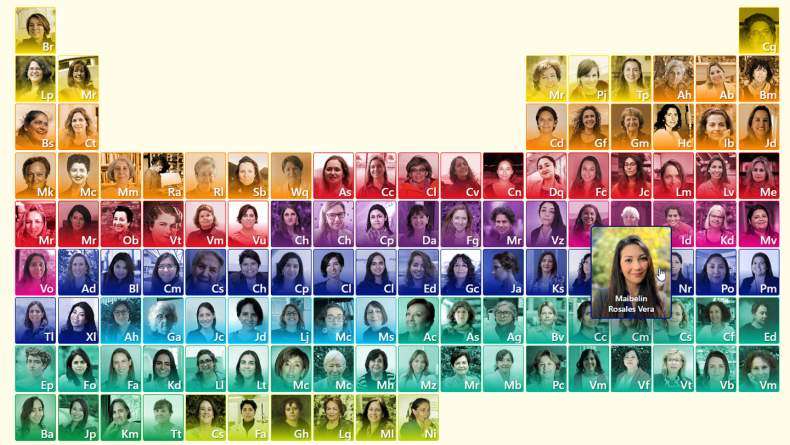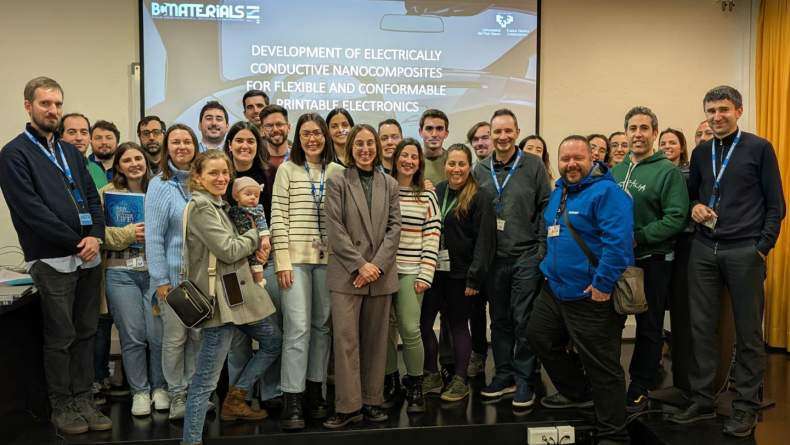Fortnightly seminars online: Deciphering the impact of electrical charges on cell behaviour by Sara Martin & Integration of multifunctional materials in POC devices by Joseba Totoricaguena

Deciphering the impact of electrical charges on cell behaviour
Piezoelectric materials, that is materials that generate an electric current when mechanically loaded, are of interest for various applications, including biomedicine. In fact, electrical stimulation is known to regulate a number of physiologic processes, ranging from bone forming to endothelial cell homeostasis. For this reason, great attention is being directed to the analysis of the influence of piezoelectric polymers on the behaviour of cells with the aim of controlling specific responses related to cell proliferation, growth, migration and differentiation.
In this seminar, I will talk about PVDF as a selected piezoelectric substrate and discuss how it affects the behaviour of Natural Killers (NKs). These cells of the innate immune system have shown great potential for the treatment of tumors resistant to standard treatment, but their wide use in clinical practice is hampered by the difficulty of amplifying them in vitro. In this context, I will show results on NK cell proliferation, survival and surface marker expression analyzed by flow cytometry. Our results suggest that static NK culture on positively-poled PVDF renders increased NK cell number, pointing to its potential for the ex vivo amplification of this cell type. Finally, I will discuss the new steps of my research and future perspectives at BCMaterials.
Integration of multifunctional materials in POC devices
Point Of Care (POC) devices enable immediate diagnostics for a better evaluation, diagnostic, treatment of patients and optimization of clinical results. Most current POC devices require specific instrumentation, such as potentiostats or optical readers. One way to make more accessible PoC devices is to use mobile phones as wireless power supply and detection equipment, leading to a rapid, robust, equipment-free and user friendly analysis. In this seminar, I will briefly explain the general ideas of my PhD project. The main goal is to design, produce and characterize devices that rely on the mobile phone as instrumentation platform. Biosensor information will be obtained by the mobile phone as either an electrical or an optical signal. Next, I will present the work done in the first 4 months and, last, I will explain my future work.
The seminar will be online due to COVID restrictions.
https://teams.microsoft.com/l/meetup-join/19%3ameeting_YmNmOTU1ZGUtMTdiNS00OTQ4LTk1YTEtZjM3YmVhMTUyZmI5%40thread.v2/0?context=%7b%22Tid%22%3a%222f54ab68-83af-4d70-8895-a0d1e95ec899%22%2c%22Oid%22%3a%227778b4e1-e06d-485b-b530-cf013d4e9498%22%2c%22IsBroadcastMeeting%22%3atrue%7d
Related news
Meeting of the new BCMaterials Board of Trustees
On April 1st, BCMaterials facilities held the center’s new Board of Trustees meeting. The Board reviewed BCMaterials overall situation and examined the results and activities reported in the 2024…Track the Twin: Digital Twins to Improve Quantum Dots
The Marie Curie doctoral network "Track the Twin," in which BCMaterials is participating, is already underway. This project aims to enhance the long-term performance of quantum dots through the…Maibelin Rosales, in the Periodic Table of Chilean Female Scientists
We would like to congratulate our Marie Curie postdoctoral researcher, Maibelin Rosales, for being selected as one of the 118 researchers recognized in the Periodic Table of Chilean Female Scientists…Esraa Sewlam and Lía Campos, New Doctors of BCMaterials
We would like to extend our sincere congratulations to pre-doctoral researchers Esraa Sewlam and Lía Campos Arias for obtaining their PhDs in Materials Science and Technology from the UPV/EHU.…



